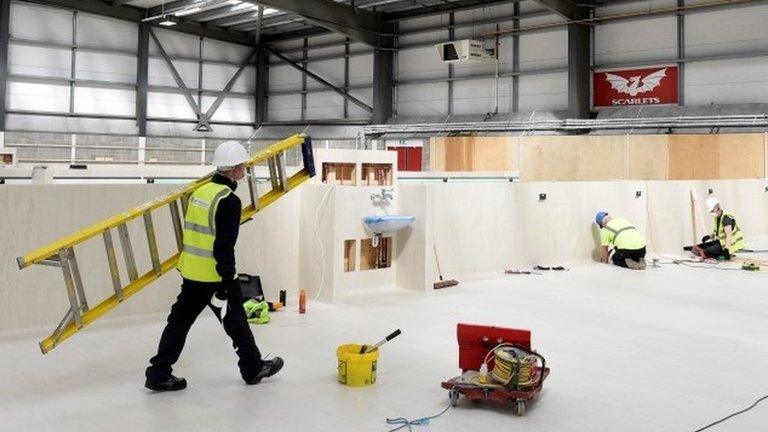Coronavirus: Young people going to A&E down 60%
- Published
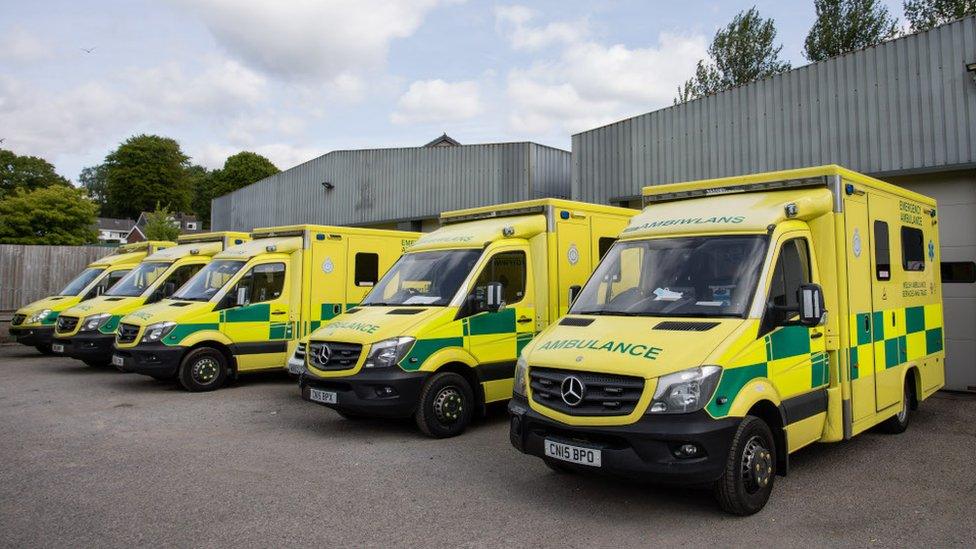
The head of NHS Wales says people should still go to A&E if they need help
The number of people at A&E departments in Wales remains down on last year, despite repeated appeals for people to seek urgent care if they need it.
The chief executive of the Welsh NHS, Andrew Goodall, said 60% fewer children and young adults were seeking help in A&E.
Overall, attendance was down by a third in May.
Some are going to A&E later than they should, leading to further health complications, Dr Goodall added.
Meanwhile, he revealed the majority of people in critical care beds in Wales did not have coronavirus.
"It is important that people with potentially urgent conditions continue to come to hospital when they need help," Dr Goodall told the daily Welsh Government coronavirus briefing.
"We would urge parents who are concerned their children may need urgent or emergency care to dial 111 or 999 in an emergency."
Attendances for over-75s had also fallen by 40%, he said.
He said workers in emergency departments had reported an increase in people "with anxiety or emotional distress and people who have presented later than they should, leading to additional health complications".
"If you are coming to an emergency department, please don't be alarmed if you see NHS staff wearing face masks or other protective equipment. They are wearing this for their protection and, importantly, for yours", Dr Goodall added.
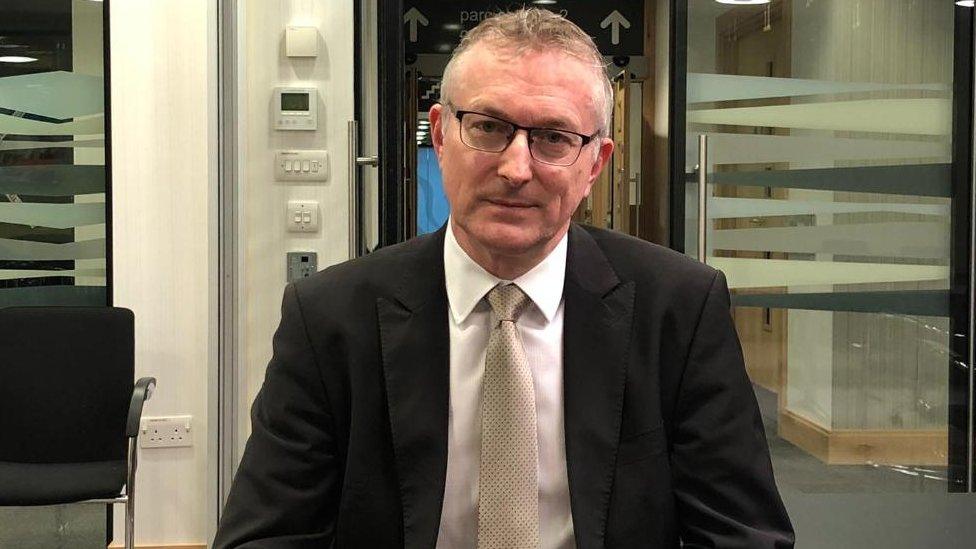
Andrew Goodall, the Welsh NHS chief executive, said around a third of acute care beds were now empty
Dr Goodall said fewer than 100 people had tested positive for coronavirus on Wednesday, and many council areas in Wales were now reporting fewer than five new cases a day.
There are more than 1,000 people in hospital, with about 300 people of those recovering and 42 people being treated in critical care.
"The number of new cases have been steadily declining every day since the beginning of April, even though we are doing twice as many tests," he said.
"The number of people dying from coronavirus has been falling since the middle of April, and most people who have had coronavirus have not needed hospital treatment."
About a third of acute hospital beds are empty - lower than last week and he said this was continuing to reduce "because we are seeing a return to normal NHS activity".
"The majority of people being treated in critical care now do not have coronavirus, which shows more NHS work is taking place," he said.
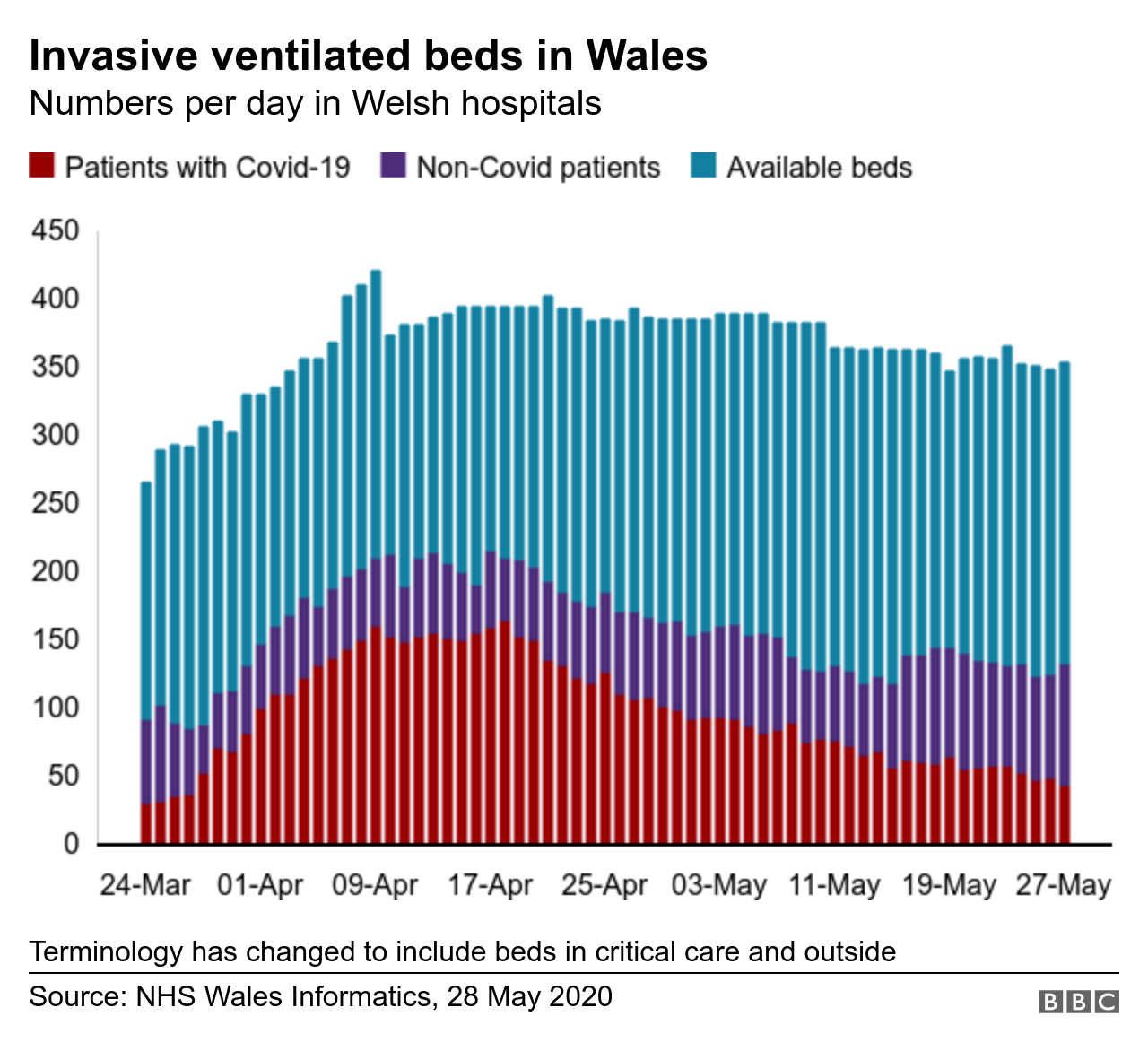
When will Wales' NHS get back to normal?
Routine activity in the Welsh NHS has been suspended since March.
Dr Goodall defined returning to normal as the reintroduction of a "level of cancer referral" and an increase in emergency admissions.
He said he believed it would "take us some weeks and months to really bring those things forward."
"Obviously, it was a very significant decision that we took back in March to step away from our routine NHS activity.
"I would still state that our focus is, as much as possible, to ensure that emergency and urgent patients are prioritised within that approach."
Angela Burns, Welsh Conservative health spokeswoman, said: "NHS Wales must - and we Welsh Conservatives have called for this for weeks - look at how it can quickly clear the backlog of referrals and treatment, especially for cancer and heart disease.
"While each of us is relieved to see numbers of infections and deaths from coronavirus generally falling, we cannot afford to see the curve from other causes of death rise."
The Welsh Government is planning to trace the contacts of people who test positive for coronavirus as a way of easing out of lockdown from 1 June.
Dr Goodall said the NHS was "on track" to have the contact tracing system up and running by Monday. He said 600 of the 1,000 staff needed were already in place.
He said: "We have made progress also on the recruitment of staff, and we've been able to have 600 of the 1,000 of staff we expect to ultimately need to be in place at this time."
Latest NHS Wales statistics show how the peaks of patients in critical care have changed over time in different parts of Wales.
Aneurin Bevan health board had 46 patients being ventilated on 11 April, higher than anywhere else in Wales.
That number had fallen to 10 by 27 May.
Cwm Taf Morgannwg and Cardiff and Vale health boards had peaks of critically ill patients at about the same time but at a slightly lower level.
Betsi Cadwaladr health board has had coronavirus patients in its critical care in a more regular pattern, the most being 25 on 18 April.
This has now fallen to seven.
- Published26 March 2021

- Published16 April 2020
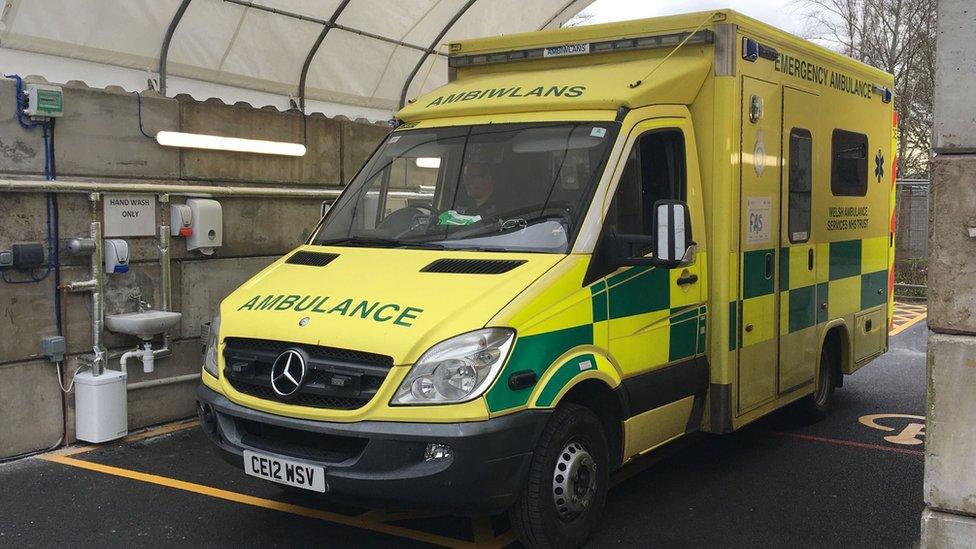
- Published4 May 2020
